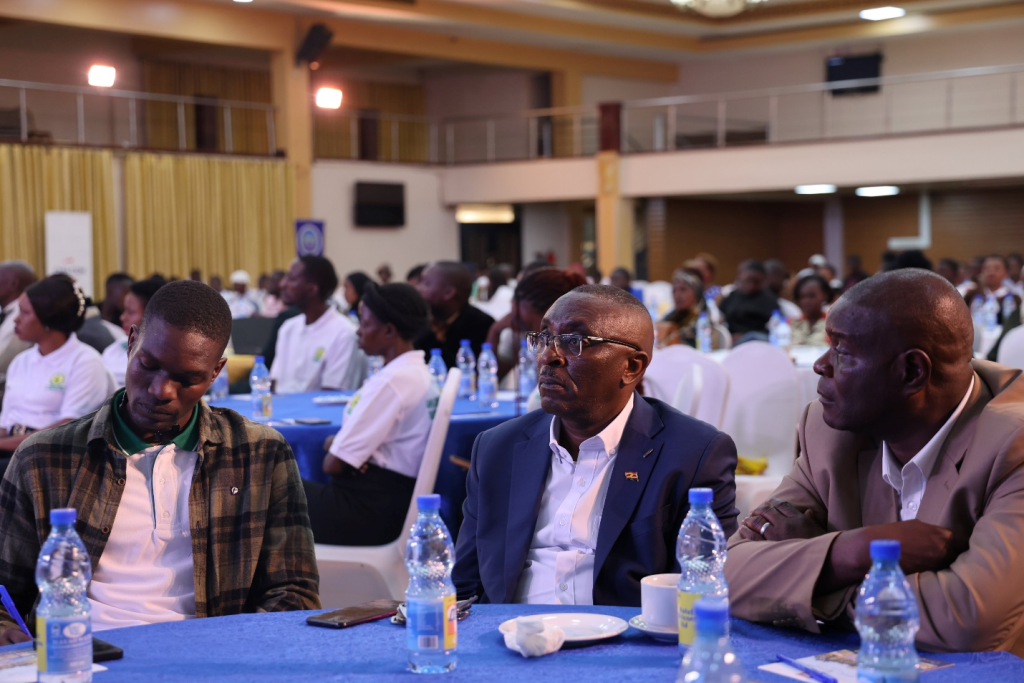The Uganda Revenue Authority (URA) has urged small-scale traders to avoid using intermediaries—such as clearing agents and container leaders—for tax-related services, citing them as a major cause of delays, misinformation, and corruption.
Speaking at the URA-Traders Dialogue 2025, URA Commissioner General John R. Musinguzi emphasized the need for direct engagement between traders and the authority. He accused some intermediary groups of misrepresenting URA and contributing to inefficiencies in tax clearance processes.
“What brings us here today is the urgent need to address the actions of certain individuals—commonly known as consolidators or clearing agents—who are driving a wedge between traders and URA,” Musinguzi said. “These are the same people responsible for unnecessary delays and misinformation.”
Musinguzi explained that many traders opt for intermediaries due to fears of bureaucracy, lack of information, or a belief that they are saving time and money. However, he warned that such reliance often stems from ignorance and fosters a lack of transparency.
“We want to make it absolutely clear: the process of clearing a container should be transparent. A trader should know exactly how long it takes—ideally two days from the Port of Mombasa—and what costs are involved. There should be no hidden charges or arbitrary fees,” he asserted.
To address accessibility issues, URA is expanding services through field posts and mobile outreach efforts such as the “Tujenge” mobilization bus. Still, many traders continue to depend on agents.
Musinguzi pledged decisive action against individuals exploiting taxpayers—whether inside or outside the system—describing them as “enemies of national progress” who prioritize personal gain over collective development.
He specifically criticized the practice of cargo groupage, where traders pool their imports to reduce transport costs. Although common, he said it often results in overcharging, false declarations, and bribery, with container leaders at the center of these issues.
“These leaders’ overcharge, falsify import declarations, and sometimes bribe officials. When caught, they abandon the goods to avoid penalties, leaving innocent traders suffering losses and blaming URA,” Musinguzi said.

He advised traders to reject bribery and report any such incidents to the URA Compliance and Ethics Unit, led by Assistant Commissioner James Abola. He reassured traders that the authority remains committed to rooting out corruption and holding officers accountable.
“We pledge to eliminate corruption and delays. Our officers will be held accountable—there will be no more excuses for delays in clearing imported goods,” he said.
Traders welcomed URA’s engagement and called for similar outreach in other regions. They acknowledged that limited tax knowledge has often led to dependency on intermediaries.
“The truth is that as traders, we struggle with understanding tax procedures,” said Charles Yiga, Chairperson of the Kampala Central Division Arcade Traders Cooperative Society (KACEDAT). “But with continued collaboration, we can gradually build a tax-conscious trading community.”
Yiga admitted that many small-scale traders remain unaware of basic tax principles and requirements. He also shared a personal experience where a container leader held his goods for over a year despite full payment of taxes.
“When I started importing goods four years ago, I unknowingly fell into the trap of a container leader,” he said. “He used his own TIN (Tax Identification Number) to clear my goods, making it difficult for URA to assist me when issues arose.”
He concluded that getting his own TIN and dealing directly with URA has helped him better understand and manage his tax obligations.



